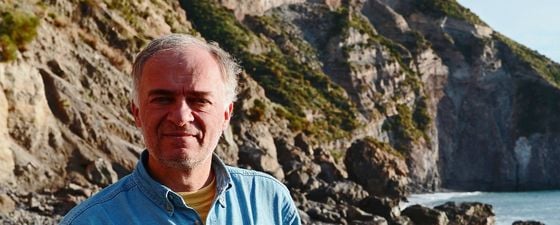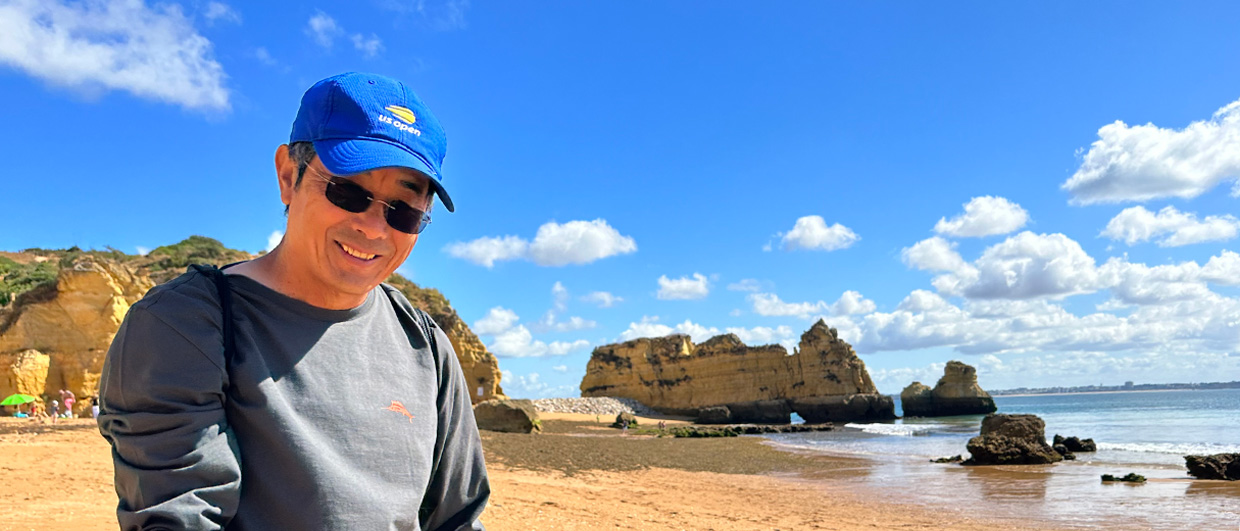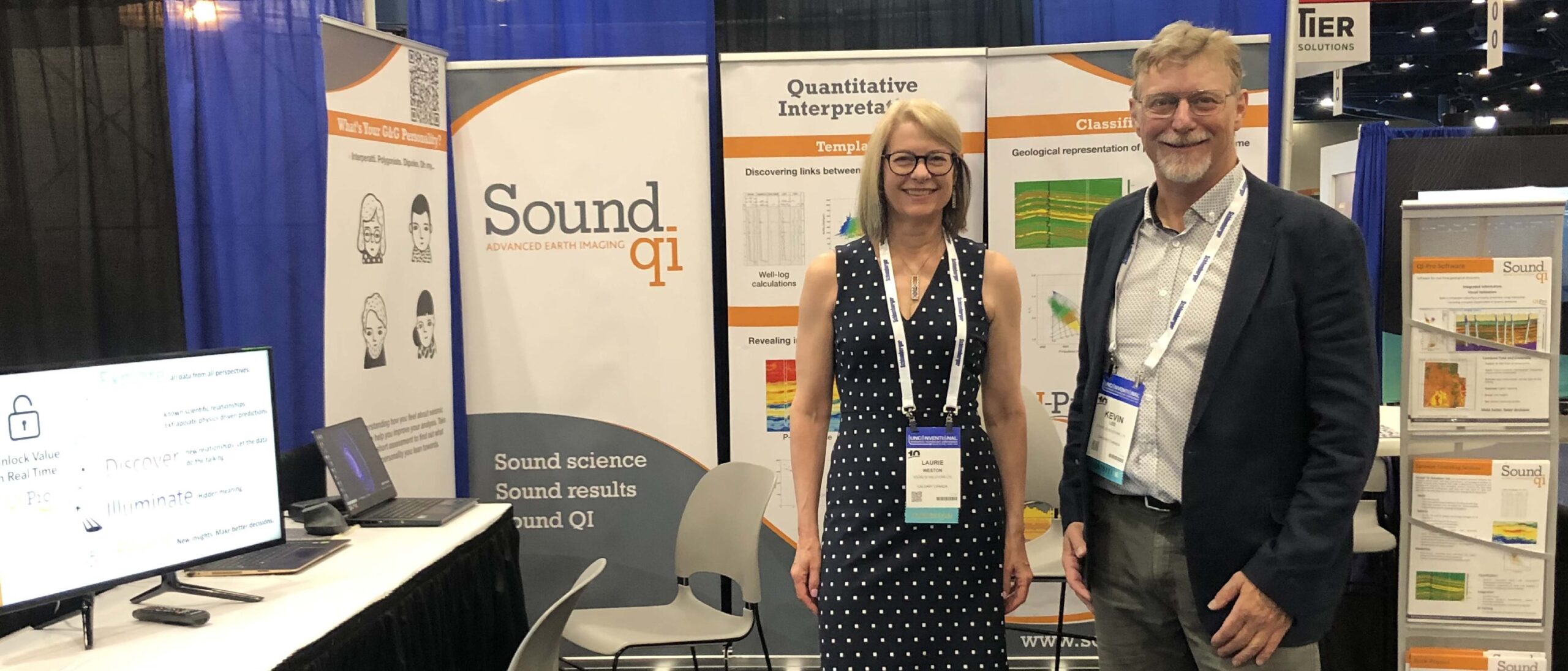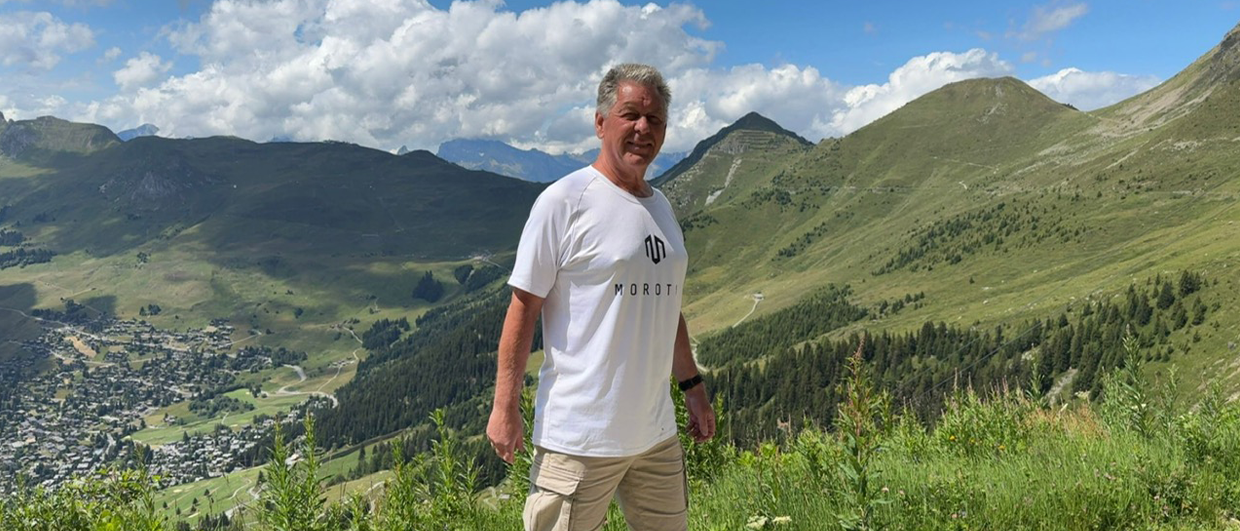First fired-up by an ‘old boy’ talk at his grammar school – in the post-colonial, pre-OPEC days of the early 1960s – Derek eagerly signed up for a career in oil exploration. A joint degree in physics and geology at Durham University in 1967 was followed by a Masters and a Ph.D. in geophysics at Newcastle upon Tyne University. The latter involved almost 15 months of fieldwork – literally – in northern Tanzania and southern Kenya, using a gravity meter to measure the gravity field across the eastern arm of the East African Rift System. This experience as a young man was the seed that developed, many years later, into a business opportunity. “It was a really exciting time, it really taught me self-reliance,” he says as he points out three sequential photos, showing his Land Rover disappearing in a flash flood: they are displayed, with pride, on his office wall. “The Land Rover was recovered!” he beams.
Derek moved into academia in 1972 as a lecturer, before becoming Professor of Applied Geophysics at Leeds University in 1994. Apart from his focus on lecturing Masters students for nearly 40 years – “They kept me mentally young, since it was as though time stood still with the students perpetually remaining about 22 years old!” – he became a prolific author of scientific papers and has clocked up well over a hundred publications in his career.
From Academia to Business
.jpg) Derek Fairhead, founder and President of GetechHowever, by the mid-1980s academic life was “losing its gloss”, and so Derek took a year of sabbatical leave to study at El Paso University, Texas, as a Fulbright scholar. Here a small flame was ignited and fanned by the experience of giving lectures directly to a large number of American oil exploration companies. The discovery that they had boxes of data, hidden away and forgotten, gave him the idea of putting together continental scale gravity compilations, by collecting, computerising and merging these data into a comprehensive unified digital database. Such a database could then be marketed back to oil companies. He invited Professor Tony Watts, an expert in offshore gravity studies who at the time was at Columbia University, New York (now Professor of Marine Geology and Geophysics at Oxford University), to complement his own onshore expertise in order to form the nucleus of a new research group. The aim was to promote such compilation studies to oil companies for funding.
Derek Fairhead, founder and President of GetechHowever, by the mid-1980s academic life was “losing its gloss”, and so Derek took a year of sabbatical leave to study at El Paso University, Texas, as a Fulbright scholar. Here a small flame was ignited and fanned by the experience of giving lectures directly to a large number of American oil exploration companies. The discovery that they had boxes of data, hidden away and forgotten, gave him the idea of putting together continental scale gravity compilations, by collecting, computerising and merging these data into a comprehensive unified digital database. Such a database could then be marketed back to oil companies. He invited Professor Tony Watts, an expert in offshore gravity studies who at the time was at Columbia University, New York (now Professor of Marine Geology and Geophysics at Oxford University), to complement his own onshore expertise in order to form the nucleus of a new research group. The aim was to promote such compilation studies to oil companies for funding.
Despite the low oil price in 1985–86 and the consequent restricted oil exploration budgets, nine oil companies came on board to fund the initial three-year gravity mapping study of Africa. Research was conducted primarily using data amassed in the colonial period by the British and French geological surveys, national surveys, academia, and by oil companies, collected from specific areas of exploration. By the end of the study 19 oil companies were sponsoring the study, and Getech was born as an enterprise attached to Leeds University. Within ten years (ie. by 1995) the company had mapped the whole world. However, the oil price crash of the late 1990s rendered the company apparently valueless and in consequence, in 2000, the University of Leeds allowed the R&D group to ‘spin off’ from the University as a limited company.
The success of the initial African project resulted in oil and mineral companies requesting similar studies of South America, then East and West Europe, followed by north Central Asia and South East Asia. As part of these studies Derek and Getech linked up with the Russia Academy of Sciences, and were able to gain access to hitherto restricted gravity data (albeit at 10 km grid resolution) collected by the Soviet military; similarly, Chinese gravity data at the same resolution was secured by partnering with educational establishments. Parallel to the gravity compilations, the company undertook magnetic compilations that covered the world.
The Chinese relationship led to Derek being awarded with an honorary professorship at the Ocean University of Qingdao, China, in 1993. Further awards came from the Bureau Gravimetrique International in 1994 for ‘outstanding works on the earth’s gravity’ and, in 1999, a special commendation award from the Society of Exploration Geophysicists.
Simple Business Model
Between 2000 and 2005 Getech boomed, boosted further by the development of new satellite technology that was able to more accurately map the gravitational field of the oceans.
“Our business model was simple,” Derek explains. “We decided we wanted to bring all sources of data together to create a global database. This was branded, in the 2010s, as ‘Globe, a live earth platform’. It contains the world’s most extensive library of global gravity and magnetic data as well as global and regional geological and palaeogeological studies. Currently ten oil companies are sponsoring the Globe study.”
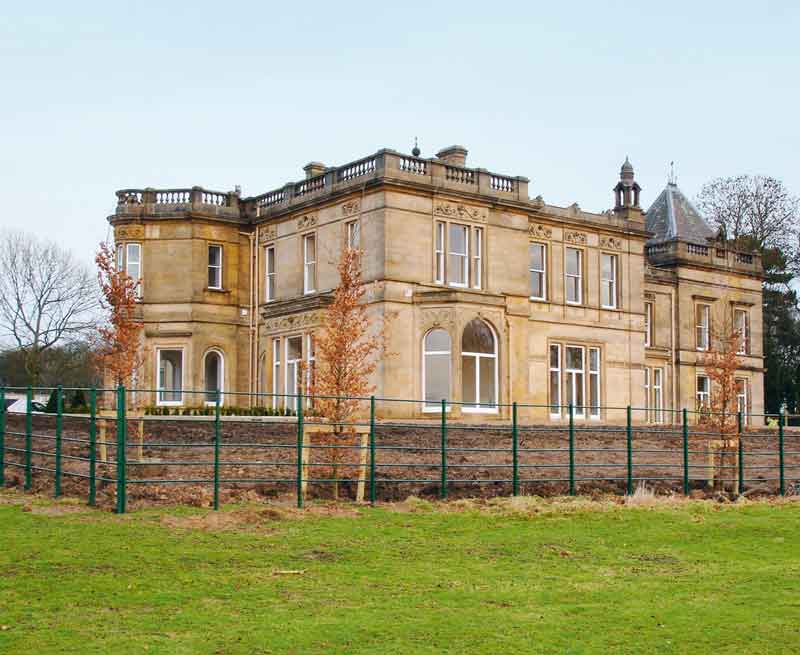 Kitson House, near Leeds, headquarters of Getech.Why would oil companies give Getech access to their own proprietary gravity and magnetic data? “The answer is that they do not have the time to collect region-wide information themselves since they are focused on their time limited exploration blocks. The value of their data is, however, preserved by Getech only releasing products on a broader grid scale that does not compromise the high resolution proprietary nature of the original data,” explains Derek. “For companies, our analysis of the resulting gravity and magnetic compilations helps to define where the sedimentary basins and sub-basins are located, and in recent times our geological expertise has brought a greater understanding to the evolution of the basins. With these data products and studies, therefore, companies are able to identify areas of interest and then use new seismic studies to refine their search for the ‘sweet spots’. These companies may also use some of the more advanced technological developments that have been made over recent years, such as Full Tensor Gradiometry (FTG) and Controlled Source Electro Magnetics (CSEM), both of which enable them to further de-risk prospects prior to drilling, giving greater certainty in their quest to discover hydrocarbons. However, both methods are expensive options, with CSEM easier to apply in marine environments rather than on land.”
Kitson House, near Leeds, headquarters of Getech.Why would oil companies give Getech access to their own proprietary gravity and magnetic data? “The answer is that they do not have the time to collect region-wide information themselves since they are focused on their time limited exploration blocks. The value of their data is, however, preserved by Getech only releasing products on a broader grid scale that does not compromise the high resolution proprietary nature of the original data,” explains Derek. “For companies, our analysis of the resulting gravity and magnetic compilations helps to define where the sedimentary basins and sub-basins are located, and in recent times our geological expertise has brought a greater understanding to the evolution of the basins. With these data products and studies, therefore, companies are able to identify areas of interest and then use new seismic studies to refine their search for the ‘sweet spots’. These companies may also use some of the more advanced technological developments that have been made over recent years, such as Full Tensor Gradiometry (FTG) and Controlled Source Electro Magnetics (CSEM), both of which enable them to further de-risk prospects prior to drilling, giving greater certainty in their quest to discover hydrocarbons. However, both methods are expensive options, with CSEM easier to apply in marine environments rather than on land.”
In 2005 Getech was floated, raising approximately £2.5 million net for the company, which allowed the company to buy the impressive Kitson House just outside Leeds. It is a fitting office environment, since the house was originally the family home of the Kitsons, whose entrepreneurial son Sir James Kitson worked with George Stephenson to build some of the earliest steam locomotives. Derek is clearly proud of the historic associations of the building, plus its semi-rural setting which provides an unusually spacious working environment for the 80-strong, young, multi-ethnic team.
Retirement? What Retirement?
It appears that Derek’s potential retirement next year is unlikely to be an endless round of golf, although “knocking a ball around a course – plus the 19th hole – is a great way to relax,” he enthuses. Independently from Getech he has already moved one step closer to the drill bit by becoming a part owner in a fledgling UK oil company, focusing on conventional onshore UK opportunities. He also plans to continue in a consultancy role with Getech, using the extensive worldwide contacts and networks which he has built up over a life-time of working in the industry.
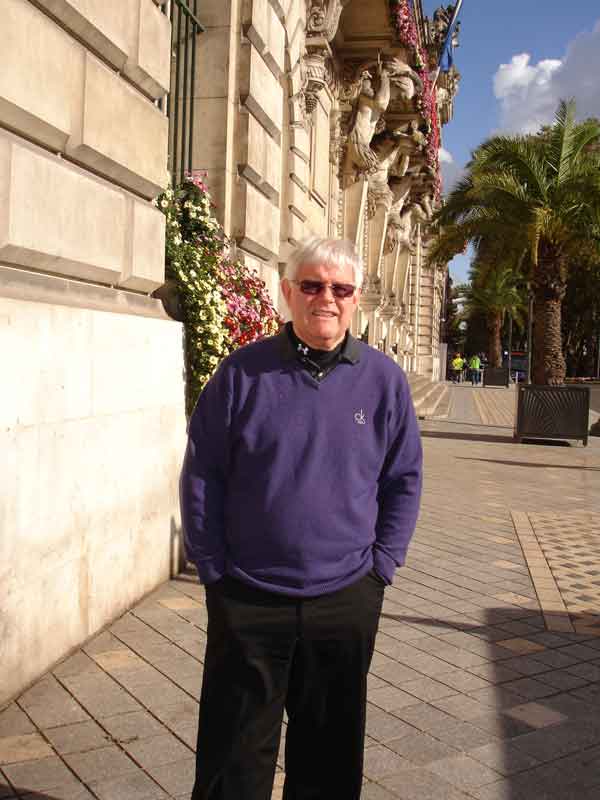 Will he miss his creation, Getech? “Yes, but one has to step back at some time,” he says. Asked about the future of the company, Derek indicates the most likely scenario is that it will be taken over by one of the much larger oil contractors now that Getech has surfaced on their radar valued at over £20 million. “But if this does not happen, the future remains extremely bright for Getech, as we are already planning various ways to expand our operations.”
Will he miss his creation, Getech? “Yes, but one has to step back at some time,” he says. Asked about the future of the company, Derek indicates the most likely scenario is that it will be taken over by one of the much larger oil contractors now that Getech has surfaced on their radar valued at over £20 million. “But if this does not happen, the future remains extremely bright for Getech, as we are already planning various ways to expand our operations.”
Either way, with Derek currently 69 years old, there are clearly no regrets: Derek is heading for new ventures and challenges.

